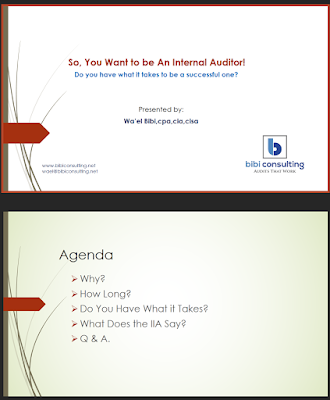Whenever there are bad news or new events, many articles and posts start to pop up almost immediately questioning "where were the auditors?" and /or offering thoughts on internal audit's role in the event. Recent examples are the never-ending cases of sexual harassments and the rise of artificial intelligence. This leads to the question; "Are auditors still an easy target?". Or one would wonder if perhaps this reaction is done out of love to internal auditors and in recognition of their vital role? If it is the latter, it should, obviously, be welcomed by internal auditors!
Many agree that the role of internal audit is continuously evolving as a result of increased stakeholders' expectations, the continuous advancement of new technology, the increase in business complexity, and the rapid emergence of risks. Many internal audit shops are rising to the expectations and challenges, but how many of them actually had the chance to “assess” the reasonability, practicality, and fairness of the expectations and discussed their views with their stakeholders?
They always say that with authority comes responsibility, and for the sake of this discussion I say: "with higher expectations come real empowerment of internal audit!".
The objective of this post is to ask for internal auditors’ thoughts to these questions:
- Do you believe stakeholders are asking too much of you?
- Are you provided with adequate tools, resources, and support to meet the expectations?
- Have you had the chance to discuss the expectations with your stakeholders?
If I receive enough responses, I will summarize them is a separate post for the benefit of those interested in the subject.
Please share your thought.










.png)


